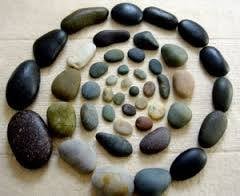Frequently Asked Questions
Don't hesitate to get in touch if you have any other questions
What will I expect on my first visit?
On your first visit you'll be asked to fill in a medical history form, it's recommended that you arrive 10 minutes prior to your appointment time to allow for this. Next we'll go through this form together and answer any questions before discussing a treatment plan for the session.
Each session may include pre and post evaluations to help determine which therapy and treatment style will work for you.
It is recommended that you go to the bathroom before your appointment and come on an empty stomach if possible.
What should I wear?
Loose fitting clothing is preferable as this will allow for movement during assessment techniques and treatment.
At all times underwear will be worn by the patient during treatment sessions. The practitioner will always use appropriate draping, respecting the privacy of each client, and adhere to the code of conduct outlined by Massage Aotearoa New Zealand.
Will I be sore after-wards? What can I expect?
Generally no, but sometimes people find they are sore or even feel worse for a couple of days post- treatment. It is recommended that you drink plenty of water and rest, as well as not to do any activities for two days following a session. This allows the nervous system to "re-think" itself, adjust and settle. During this time, you can be vulnerable to injury and potentially undo the work done in the previous treatment session. Even household chores should be put off for a couple of days if possible.
Also you might experience the unexpected with any type of bodywork. Sometimes detox symptoms may occur, and emotional releases are not uncommon. You may feel elated and joyful or angry, irritable and even depressed. It's really important to express all of these emotions, as it is your body's way of processing. If you need a good cry go for it, find a quiet space, tap into support networks and do things that make you feel present and safe.
What can you help me with?
Restorative bodywork therapies can help you with a wide variety of alignments. From complex issues such as nerve entrapments like sciatic and IBS, to day to day aches and pains. Have a recurring headache or issue that won't resolve itself with traditional methods? Often by coming from the whole body and holistic approach a more comprehensive treatment plan can be achieved, and improvement brought to patients.
If nothing changes for you after 3-4 sessions or we feel our treatment methods are out of our scope of practice. I'll endeavour to collaborate with other practitioners and cross refer to get the best result possible for you.
Do you do deep tissue massage?
The answer is both yes and no. The techniques used by Restorative are effective in working with tissues deeper in the body. What is commonly known as deep tissue massage, where heavy pressure and a certain amount of tolerable pain is created, will provide relief but aren't always as effective long term.
The right amount of pressure for you will be used during massages, which may involve heavier work and trigger point releases. However lighter techniques involving proprioceptors and the nervous system are more likely to give results. Tight muscles are usually from overuse, being weak and not working properly, other issues in the body, or somato-emotional reasons. All of which Restorative can help you with.
How often should I have a treatment?
This will depend on what is going on for you. If you are in acute pain and having difficulty functioning with daily tasks, once weekly is recommended until the pain subsides. Every two weeks once you reach this stage or if you have on-going pain, which is annoying but not limiting. Once a month is recommended for general body maintenance and improved function, however this can be on a if and when needed basis.
Certain techniques like visceral manipulation require less frequent sessions as they keep working 3 weeks post treatment and need to allow for your body to settle and readjust.
Others like manual lymphatic drainage require more sessions closer together to gain the most benefit.
The number of sessions you'll need and for how long will be discussed with you during your first appointment and reviewed as we go.


Can I bring a support person?
Of course! You are most welcome to bring a support person or Whanau member with you during your session. They can be present during your treatment at your request or can make themselves comfortable in the waiting areas.
Parents can bring their children with them, including babies, if they can't find a babysitter. I'll accommodate them the best I can and be flexible with the work on the day. Even shortening an appointment if necessary.
Mothers are most welcome to feed babies during sessions as well.
What happens if I'm sick? Can I still have a massage?
If you are at the start of your illness and in the infectious phase, then no. Your therapy session will be rescheduled if you are unwell. Undertaking bodywork at this stage can exaggerate symptoms and make them worse. Plus you could pass your illness on to the therapist. Your practitioner is duty bound to protect the well-being of both you, themselves and other patients that they are seeing.
In the case of testing positive for covid or if any household members test positive, the client is asked to only come in for an appointment once they are testing negative.
Please note there is a 50% cancellation fee charged for no shows on the day, without prior notice. This is to cover costs incurred. This fee will be waived in the case of your therapist deciding to reschedule your appointment due to sickness.







